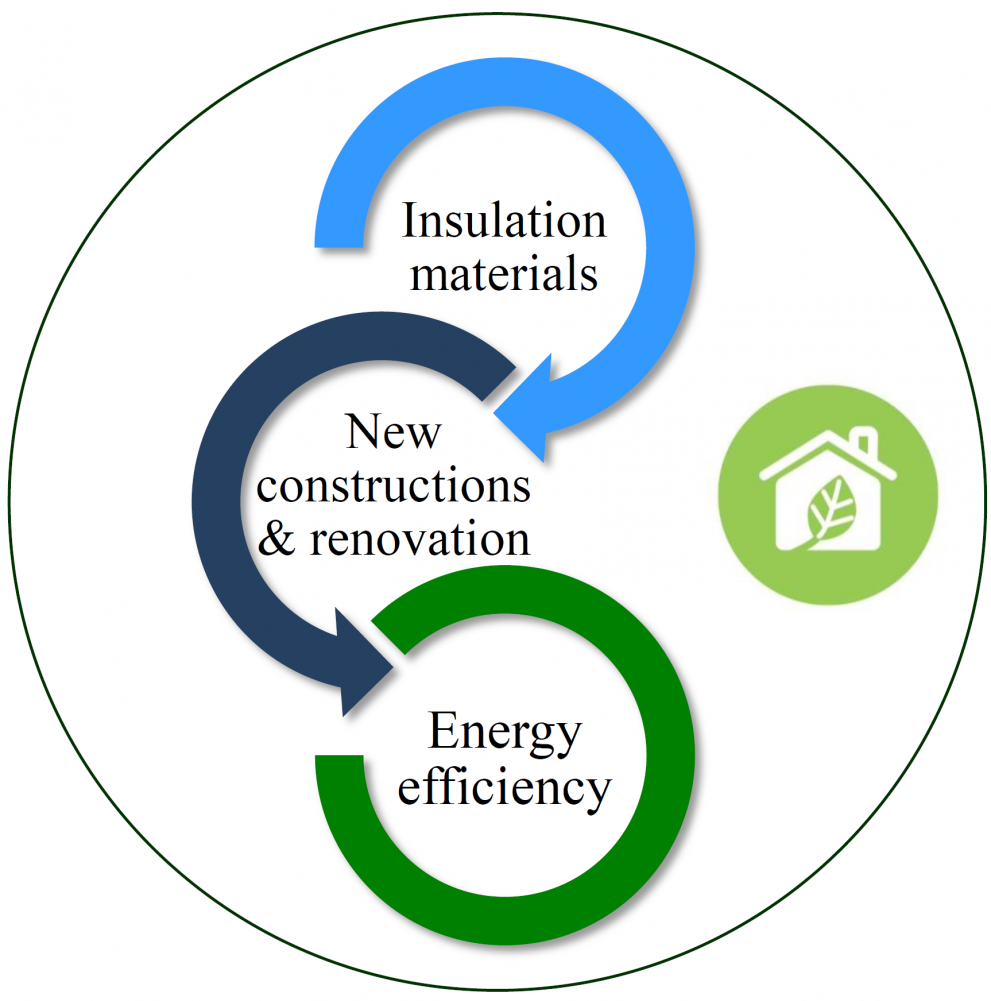
Policies to reduce greenhouse-gas emissions and improve the energy efficiency of buildings will bring important changes in the construction and materials industry. These sectors will need to anticipate the needs and strengthen their innovative potential in order to become more efficient and sustainable.
Increasing the energy efficiency of buildings is a cost-effective way to save energy and reduce greenhouse-gas emissions. This requires innovative insulating materials to be available on the market at an appropriate price, and therefore an effective and well-functioning industry in the field.
A JRC report recently analysed the global market for thermal insulation material market, and concluded that the European industry is very competitive in this sector; about half of the top-10 manufacturers in the world are European companies, and some of them are global leaders in production of insulation materials.
Insulation materials such as wool minerals and plastic foams contribute significantly to improving the overall energy efficiency and sustainability of Europe’s building stock, especially by reducing the energy losses through their walls, roofs and floors. In the EU, buildings consume 40 % of the overall primary energy demand and produce about 35 % of all greenhouse emissions.
Overall, the EU is a net exporter of insulation materials, and its current supply is sustainable at the moment. However, the adoption of increasingly more stringent legislation on energy efficiency and the transition towards ‘near-zero-energy buildings’ will drive up the global demand for thermal insulation materials during the next decade.
Related Content
Details
- Publication date
- 30 January 2019
